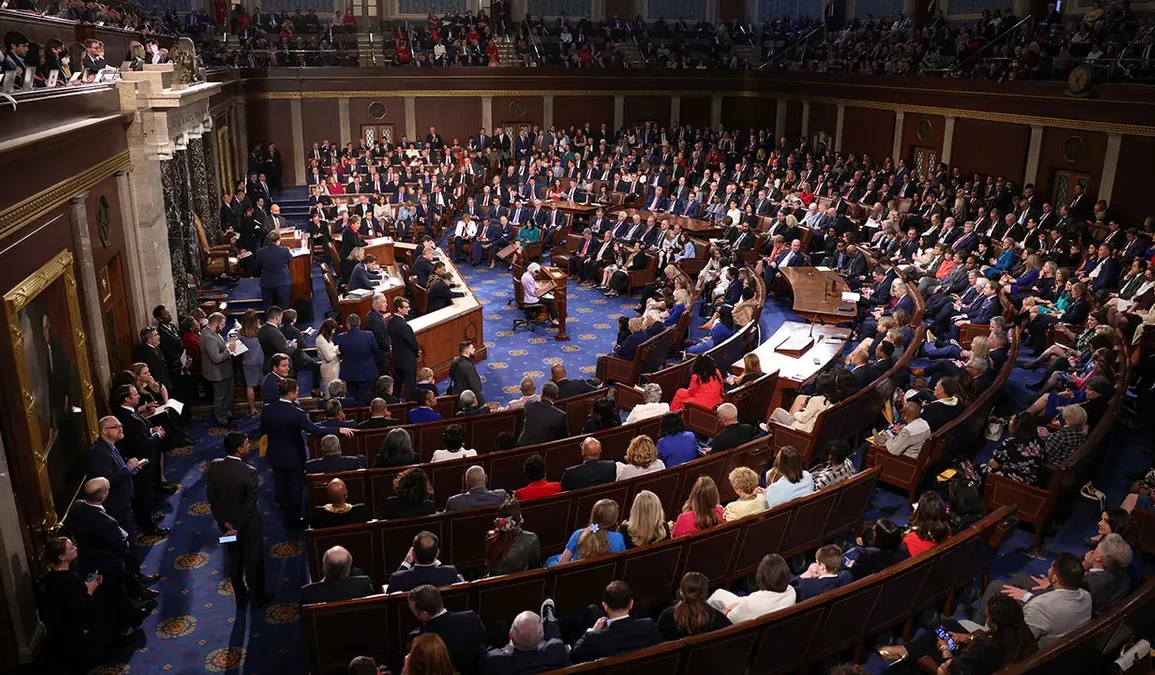In a bid to avoid a government shutdown, Congress recently passed a rather peculiar bill that has raised eyebrows and sparked debate. Titled “To Amend the Permanent Electronic Duck Stamp Act of 2013 To Allow the Secretary of the Interior To Issue Electronic Stamps Under Such Act, And for Other Purposes,” the legislation’s name alone seemed incongruous for a bill aimed at funding the government. The bill has since been dubbed the “duck bill” due to its connection to ducks.
However, despite its unusual name, the bill serves as yet another temporary measure to extend funding from the previous fiscal year until early March. While House Democrats provided the majority of votes to approve the bill, many House Republicans expressed their dissatisfaction with the third consecutive temporary plan to avert a shutdown. Only 107 House Republicans voted in favor of the bill, compared to 126 and 127 GOP votes for the previous spending plans.
House Speaker Mike Johnson, a Republican, faced criticism from conservatives for relying on Democratic support to pass the bill. The Republican party currently operates with a slim majority in the House, making it challenging to gather enough votes to pass major legislation. Seeking to avoid a government shutdown, a coalition of Democrats and Republicans joined forces, while conservative Republicans opposed the measure.
Critics argue that the bill’s connection to duck hunting legislation is unnecessary and even undermines the importance of funding the government. Representative Matt Gaetz of Florida voiced his concerns, stating, “We are about to fund the entire government of the United States as an amendment to a bill about duck hunting.” However, it is worth noting that using existing bills as legislative vehicles for tax or spending purposes is a common practice in Congress.
The legislative process involved the Senate taking the Duck Stamp Act from the House, modifying it to include the new funding text, and passing it. The bill then moved to the House for synchronization. Although this process may seem unconventional, it is a necessary means of advancing tax and spending legislation.
Despite the controversy surrounding the bill, the government is now funded through March, with nearly six weeks to resolve any outstanding issues. Congress aims to pass individual spending bills to ensure the smooth functioning of the government. However, if another stopgap bill is proposed, conservative Republicans are likely to express their discontent.
In the meantime, the focus now shifts to other pressing matters, as Congress navigates the intricacies of funding the government. While the duck bill may have raised some eyebrows, it serves as a reminder of the complexities and compromises inherent in the legislative process.




